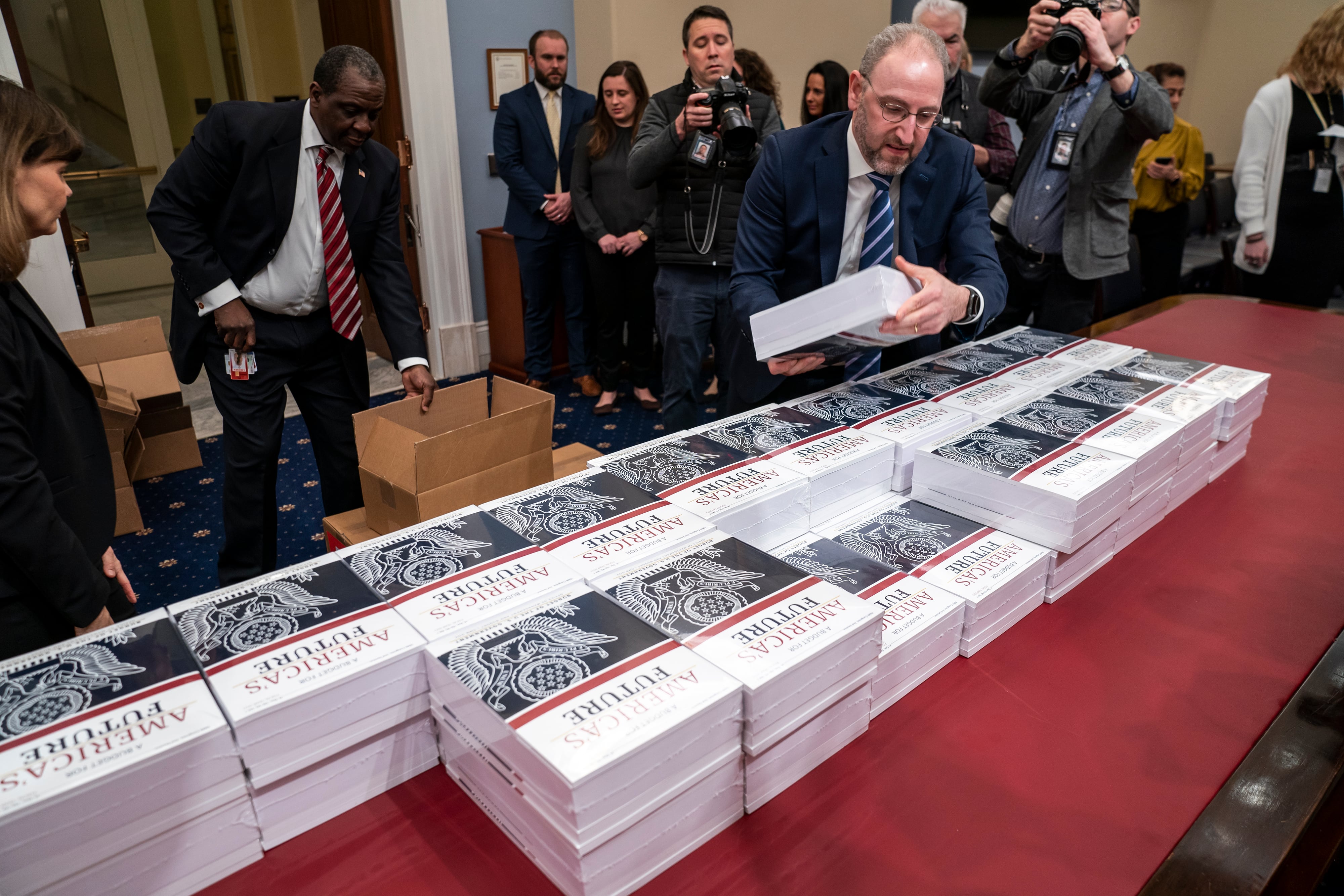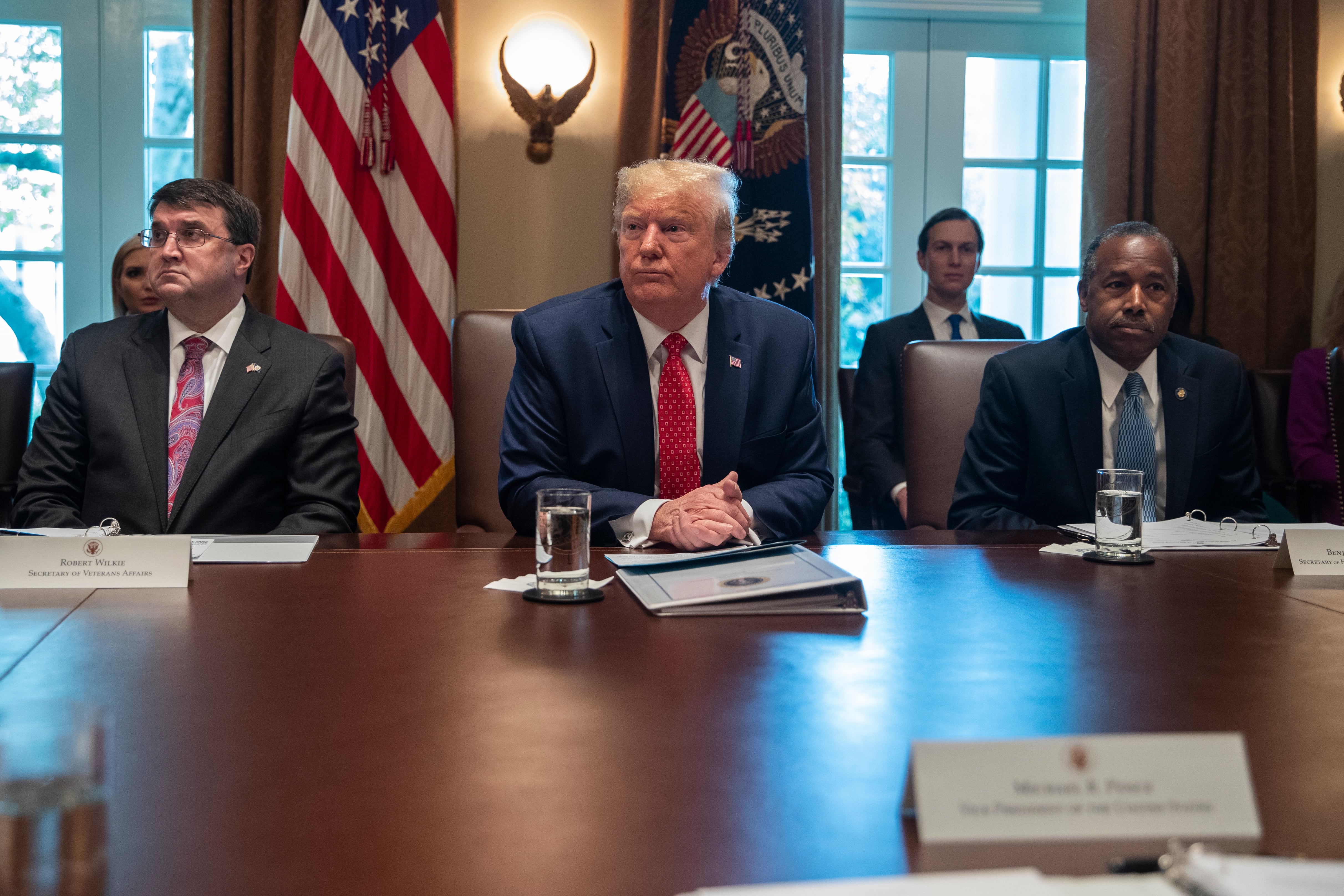Thursday’s congressional hearing on the Veterans Affairs budget plan for fiscal 2021 quickly turned into a referendum on President Donald Trump’s first term in office, with supporters extolling changes in the department in the last three years and critics attacking a lack of progress.
For his part, VA Secretary Robert Wilkie portrayed the agency as dramatically transformed from the tumultuous bureaucracy before his confirmation in summer 2018.
“A few years ago, there were incredible stories of failures and excuses,” he said. “And today we are not only leading the country in innovation and systems but above all, we have satisfied veterans … It’s a record of achievement that I think most federal departments would be proud of.”
RELATED

He pointed to improvements in the department’s information technology infrastructure, new accountability rules which have prompted the firing of more than 8,000 employees, shorter wait times inside VA hospitals and easier rules for health appointments outside the VA system.
Those assertions were buttressed by a two-page list of “accomplishments for veterans under the Trump administration” by House Veterans’ Affairs Committee Republicans.
Several items, such as lower veterans unemployment and expanded health care options, have been steady talking points on the campaign trail for Trump. Others, like the repeal of the Defense Department “widows tax,” focused more on military than veterans issues. And claims of success on VA accountability and progress on suicide prevention have been disputed by Democrats.
Administration officials have asked for a budget of more than $243 billion for next fiscal year, an increase of more than 10 percent at a time when most federal agencies are seeing small boosts or significant cuts.
Wilkie said the money is needed to continue progress on suicide prevention initiatives, improved care for women veterans, the ongoing overhaul of department electronic medical records and support programs for homeless veterans.
But House Veterans’ Affairs Committee Chairman Mark Takano, D-Calif., said he is “deeply concerned” with the department’s follow-through on those initiatives and the overall federal spending plan.
“This (VA) increase comes at the expense of significant cuts to critical (non-VA) domestic programs that veterans, especially those in crisis, depend on,” he said. “When you consider it in its entirety, this budget is a cruel document that cuts housing, food security, healthcare, and key assistance that millions of veterans depend on.”
Much of Wilkie’s two-plus hours of questioning by lawmakers alternated between those political poles, with Democrats warning that veterans will suffer under the funding proposal and Republicans praising it as another step in providing needed support to veterans.
If the VA spending plan is approved — lawmakers are unlikely to pass it before the November election, and unlikely to move it ahead without a broader agreement on the whole federal budget — it would mark another significant funding boost in a steady stream of increases over the last two decades.
At more than $105 billion in discretionary spending, VA would become the second-largest federal agency, behind only the Department of Defense (which boasts nearly six times the VA proposed level). The Department of Health and Human Services, which had been the second-largest agency, is projected to receive a 9 percent funding cut under the plan.
The fiscal 2021 budget request is nearly double the total VA funding level from 10 years ago and more than five times the total in fiscal 2001, when the entire budget was about $45 billion.
Wilkie is the fourth confirmed secretary to lead VA in the last six years. Two of the previous secretaries (Eric Shinkseki and David Shulkin) were forced out of the post due to scandals within the department. In addition, another Trump pick for the post — former White House physician Ronny Jackson — withdrew his name from consideration under a cloud of controversy before Wilkie’s nomination.
RELATED

Wilkie’s appearance on Capitol Hill came just few weeks after the sudden dismissal of the department’s second-highest ranking official and congressional requests for an inspector general investigation into Wilkie’s handling of a sexual assault claim at the Washington, D.C. medical center last fall.
Neither issue was broached directly by lawmakers in the hearing. Takano says he is planning another hearing on VA’s sexual assault and harassment policies in the near future. Wilkie told the committee he will testify at that event.
When asked if he hopes that hearing will help clear the air on the medical center investigation, Wilkie said “I hope so.”
Leo covers Congress, Veterans Affairs and the White House for Military Times. He has covered Washington, D.C. since 2004, focusing on military personnel and veterans policies. His work has earned numerous honors, including a 2009 Polk award, a 2010 National Headliner Award, the IAVA Leadership in Journalism award and the VFW News Media award.





